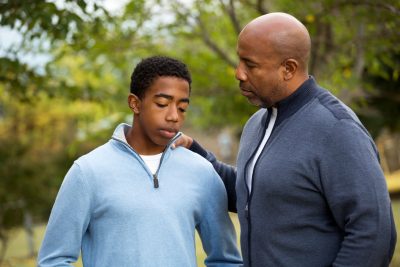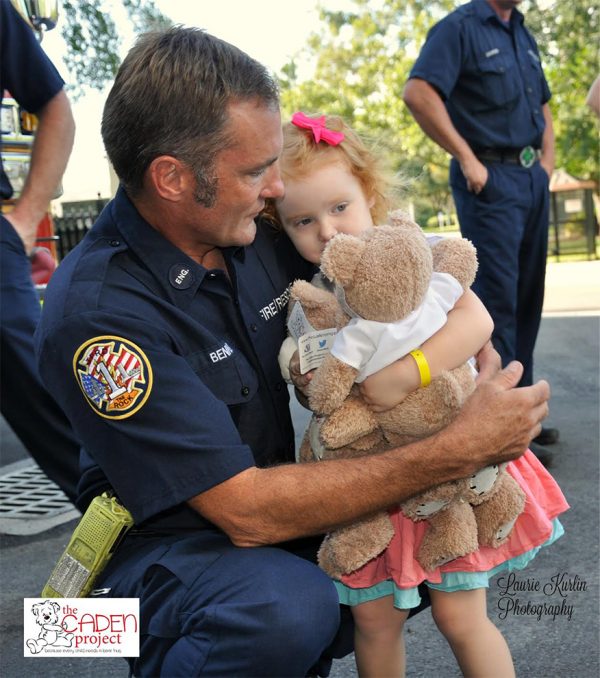The nation watched in horror as yet another multiple-fatality shooting unfolded on July 28, 2019, claiming the lives of an innocent man and two children in Gilroy, California. Local first responders, including members of Gilroy Local 2805 responded swiftly to secure the scene and provide lifesaving medical care.
If you are both a fire fighter and a parent, responding to the loss of life of a child can be an incredibly traumatic event. And while society has begun to explore the impact of post-traumatic stress on fire fighters, there is one population that receives less attention: the children of fire fighters.

Whether it’s responding to a mass shooting, fatal fire or line-of-duty-death, even young children can understand the inherent danger of a fire fighter’s job and the world in which they live. Likewise, if a sudden loss of life occurs, especially the life of a child, the impact can be felt through every layer of a community. When traumatic events such as the Gilroy shooting capture the nation, children of fire fighters may not only fear for their own safety, but their parents’ safety as well.
Talking to your kids about the loss of life is never easy, but here are some points to consider:
Age
In the aftermath of a mass shooting, the developmental stage of your child should guide your approach. For kids ages 0–5, it’s likely they are unaware of the event and, thus, do not need a direct explanation. If you responded directly to the event or were injured, however, it may be appropriate to say to an older toddler, “Daddy or Mommy had a bad day at work, but I’m safe and happy to be home now.” At this age, most children lack an understanding of death and value predictable routines above all else.
For kids ages 6–11, it may be helpful to inquire about what your child has already heard at school or believes about the incident. While avoiding the discussion altogether may feel more comfortable in the short term, not directly acknowledging a traumatic community event may produce more anxiety for your child at a time when they need stability and reassurance. It’s appropriate to confirm broad facts of what occurred while limiting exposure to media and discussion of unnecessary details or graphic content.
While teenagers may seem to have little reaction to a shooting initially, they certainly understand that death is real, inevitable and irreversible. As a primary adult in the life of your teen, you have a critical opportunity to model some important life lessons. Death is a part of life and sometimes bad things happen to good people for no reason. When a death occurs earlier than it should, remind your teen that it is perfectly normal to be sad and angry and want answers to important questions. Be honest with your teen that you do not have all the answers, but you are here and ready to listen when they are ready to talk.
Offer Reassurance to Your Child
Regardless of what type of incident occurred, kids of all ages need to know they are physically safe and that their parents are safe. Kids need reassurance that the adults in their life — parents, teachers, fire fighters and police — are doing everything possible to keep their world safe. In chaotic or emotional times, it is critical that your child has consistency with mundane routines, such as pick-up and drop-off schedules and family meals. These rituals help convey a sense of normalcy to a child or teen and send the message, “Even though this tragedy occurred, I am still here for you and your world is not changing.”
For fire fighters, convincing your children you are safe is a more complicated message. Don’t offer false realities or promises that you cannot keep. Instead, acknowledge your children’s fears and the inherent risks of your job, while offering assurance that fatal events (such as mass shootings) do happen, but are exceedingly rare. Educate your kids on the numerous precautions that are taken to ensure your safety on the job. When you are off duty and feel the time is right, consider taking your child to visit your firehouse to introduce them to some of the crew members and equipment that help keep you safe.
Acknowledge Your Own Feelings
Regardless of the adversity, kids will take a cue from their parents on how to cope. Teach your kids it’s OK to talk about feelings, ask for help, and find healthy outlets to manage pain. For example, “Mom and Dad feel sad (or scared) too. We don’t know why this happened, but we know we love you.” By acknowledging your own feelings in response to a tragic event, you are modeling a crucial life skill that all kids need: emotional intelligence.

Parents Need Help Too
Responding to an active shooter event or community violence incident is not an everyday occurrence and can emotionally impact even the most seasoned fire fighter. Whether it’s triggered by one bad call or an accumulation of many, post-traumatic stress disorder (PTSD) is a real, treatable condition that about 20 percent of fire fighters will experience during their career.
Help is available for you or your loved one. The IAFF Center of Excellence for Behavioral Health and Treatment and Recovery is a comprehensive residential treatment center exclusively for IAFF members struggling with PTSD, depression, addiction and other co-occurring conditions. Call today for a free and confidential screening.
Sources:
Fire Fighters Calling 9-1-1. “PTSD and Cancer: Growing Number of Fire Fighters and Paramedics at Risk.” International Association of Fire fighters, August, 2016. Accessed July 31, 2019.




